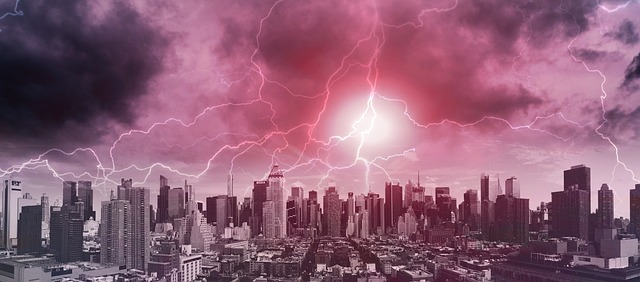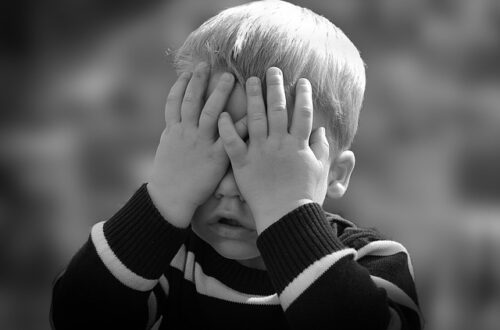Climate disasters are intensifying, putting the health of millions at a greater risk. This year’s summer mantled the United States with dangerous heat levels for several days. Weather maps were splotched with red tints because of extreme heatwave alerts. After summer, the country is experiencing another natural disaster as Hurricane Milton slammed into Florida’s coastlines. This Category 3 calamity carries strong tornadoes, fierce winds, and flooding rains that devastate thousands of people. What are the implications of these worsening weather tragedies for public health? Is this a wake-up call for immediate action toward improving environmental conditions?
Climate Disasters Are a Serious Health Threat
Over the years, people have experienced firsthand extreme natural disasters. President Joe Biden called Hurricane Milton “the storm of the century” because of its destructive power. This decade, severe heat waves, massive wildfires, and cataclysmic hurricanes have surprised the planet more frequently than before, affecting the public in ways beyond devastating their homes.
1. Wildfires Worsen Respiratory Problems
Large-scale wildfires have been occurring around the U.S. lands since 2020 because of the rising greenhouse gas emissions. These gases trap heat in the atmosphere. On the ground, this causes severe drought and extreme heat, creating the conditions for a climate crisis. The August Complex Fire charred over a million acres of land across Northern California, leaving people choiceless but permanently evacuating their homes.
Wildfire emissions are detrimental to health in a myriad of ways. Minor problems can range from eye to respiratory tract infections. However, more serious risks can arise, such as bronchitis, reduced lung function, worsening asthma and heart failure, and even untimely death. Wildfire smoke increases visits to hospitals and clinics nationwide.
2. Heat Waves Lead to Heat Stroke
Heat waves pose the same level of health compromises as wildfires to humans. This summer hammered certain parts of the country with more heatwaves than seen in the last century, jeopardizing the well-being of adults and children alike.
In July, 140 million Americans were under active National Weather Service heat warnings. Las Vegas tallied 120 degrees Fahrenheit, breaking the city’s 2017 record by 4 degrees. Washington, D.C., was hit with 110 degrees Fahrenheit temperature. As a result, more heat-related emergency room visits were recorded. Life-threatening burns are a significant concern in areas with asphalt roads since they could overheat up to 160 degrees Fahrenheit.
People living in urban areas often experience the heat island effect during seething hotness. Structures, like roads, buildings, and other infrastructure absorb heat, making the ground hotter than it actually is. Daytime temperatures in cities are about 1-7 degrees Fahrenheit higher than in the forest-covered areas.
Minor health consequences of scorching temperatures include dehydration, heavy sweating, and fatigue. However, some may additionally experience fatal heat cramps or heat stroke. Those who work in the field must take extra precautions during summer to protect their bodies from exhaustion and stress associated with hot, outdoor environments.
3. Hurricanes Cause Mental Health Issues
People bear the brunt of climate change because of more destructive weather events. The recent Hurricane Milton is one example. It wiped out about 125 homes and pounded the Tampa area with fierce winds and heavy rains. While residents in Florida are no strangers to storms, this is the third hurricane to make landfall in the state in a single season.
Due to these intensifying storms, researchers anticipated that about 13.1 million Americans would migrate from coastal zones during the 21st century. More than the displacements, traumatic hurricanes inflict psychological stress and adverse health outcomes on people who experience them.
Environmental stressors persist for months following a catastrophic storm. For example, water could get contaminated after heavy rains, promoting the growth and spread of bacteria and mold. Some building materials may also release toxic substances when wet. Hurricanes could cause or exacerbate multiple diseases, such as asthma, heart ailments, and psychological conditions. Many develop post-traumatic stress disorder after experiencing a devastating, natural crisis.
Moreover, power outages following a hurricane result in operational shutdowns in essential services, such as hospitals. Downtimes can cause medical equipment failure and limit doctors’ procedures on patients. At worst, extended power outages in healthcare facilities can lead to potential loss of life if lifesaving machines remain offline.
Climate Disasters Undermine Social Determinants of Health
Another way weather events compromise the public’s well-being is by depriving people of their livelihoods, access to care, and social support structures during critical times. Heavy rainfall, snow, and heat prevent them from making a living and impact their ability to put healthy food on the table. Nutritional deficiencies could be one of the repercussions.
Access to care services is important during a crisis. However, since roads often get damaged or blocked by fallen trees during stronger storms, people don’t receive the help they need. Severe weather events impede emergency responses during time-sensitive periods. When climate disasters reach an overwhelming scale, volunteers can’t distribute food, drinking water, and other basic essentials or provide social services immediately. The delay puts people’s health at immense risk.
Scientists believe the major contributor to these extreme natural events is the need for more innovation in the energy industry. The U.S. and other industrialized nations contribute over 75% of annual emissions from extracting and burning fossil fuels. Electrifying power sources is the best solution to address emissions and climate change.
Climate Disasters Directly Affect Public Health
People’s actions toward the environment, whether good or bad, directly impact their health. At the end of the day, the positive change everyone waits for lies in nothing but their hands. Everyone is responsible for caring for the planet. May these disasters serve as a wake-up call for people in power to take immediate action to solve climate change.
Jack Shaw is the senior Outdoors writer for Modded, a men’s lifestyle publication. An avid outdoorsman and lover of nature, he’ll often find himself taking retreats out to explore his environment and encourages others to do the same in ways that are sustainable and beneficial to the environment.
Image by Gerd Altmann





